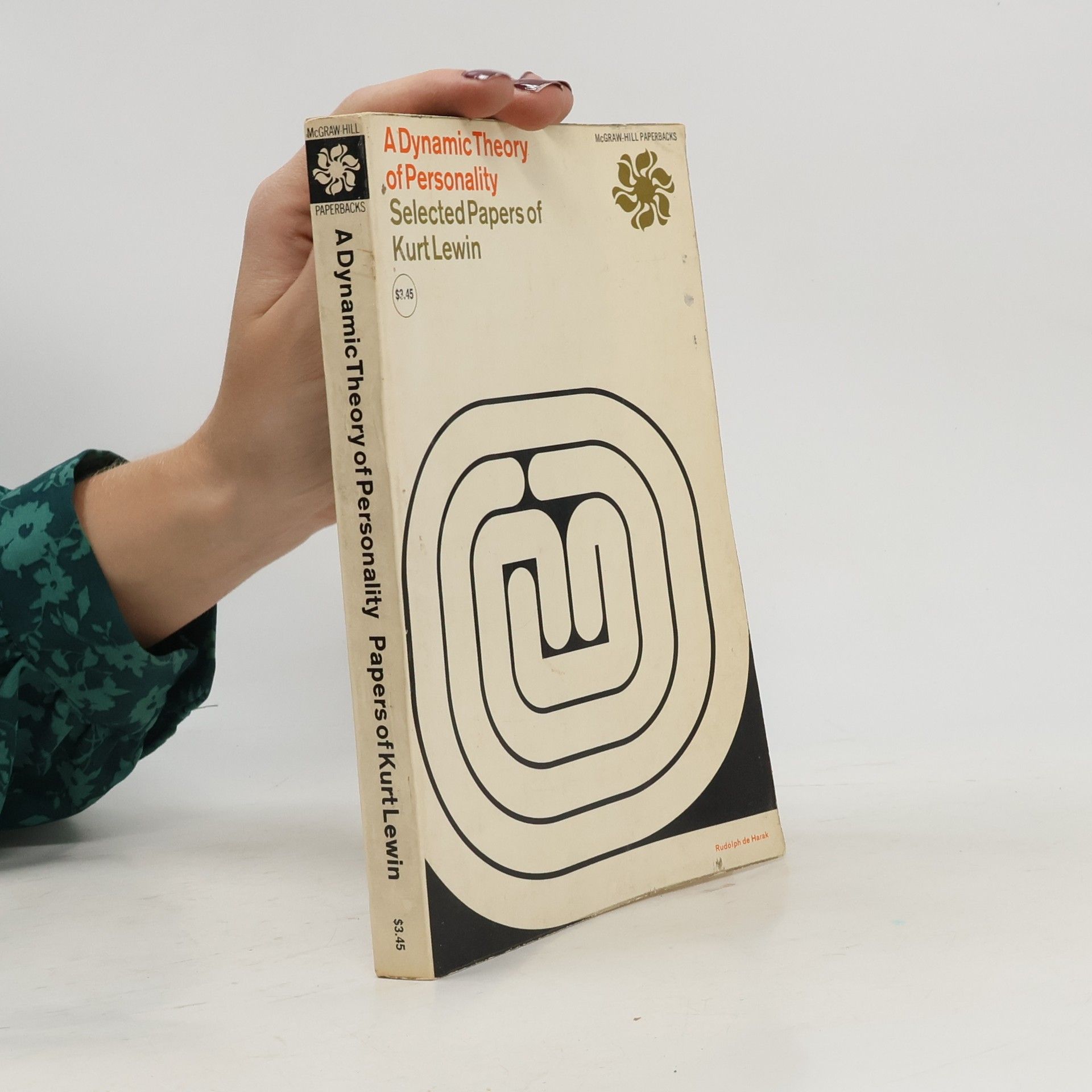Psychologie dynamique
Les relations humaines
Kurt Lewin était un psychologue germano-américain, reconnu comme l'un des pionniers modernes de la psychologie sociale, organisationnelle et appliquée aux États-Unis. Exilé de son pays natal, il s'est forgé une nouvelle vie et a laissé une marque indélébile dans son domaine. Son travail se caractérise par un profond intérêt pour la dynamique du comportement humain au sein des groupes et des organisations, en mettant l'accent sur la compréhension des facteurs qui sous-tendent le changement social. L'héritage de Lewin réside dans ses théories et méthodologies influentes qui continuent de façonner la recherche académique ainsi que les applications pratiques de la psychologie.







Les relations humaines
Kurt Lewin byl významným badatelem v oblasti sociální, organizační a aplikované psychologie. Předkládaný výbor akcentuje zejména Lewinovy práce týkající se teorie pole. Ta zdůrazňuje důležitost momentální situace, v níž se jedinec nachází, pro pochopení jeho chování a představuje perspektivu, ze které Lewin nahlížel na všechny problémy, jež ve svém vědeckém životě řešil. Teorie pole je představena jak na obecné rovině, tak pomocí konkrétních příkladů z oblasti vývojové psychologie (analýza učení), psychologie partnerského soužití (analýza manželského konfliktu) a psychologie malých sociálních skupin (skupinová dynamika). Věříme, že pro dnešního čtenáře budou inspirací nejen Lewinovy teoretické stati, ale i jeho mimořádná schopnost využívat aplikovaný výzkum pro řešení aktuálních společenských otázek. Zahrnuty jsou proto též texty věnované myšlence akčního výzkumu a aplikace obecných konceptů do každodenní praxe. Kurt Lewin (1890–1947) byl americký psycholog německého původu. Bývá považován za zakladatele sociální psychologie. Stál mimo jiné u počátků studia skupinové dynamiky. Byl osmnáctým nejcitovanějším psychologem ve 20. století.
Aufsätze, Vorträge, Rezensionen
Dieser Band fasst Lewins vielfältige Arbeiten zur angewandten Psychologie zusammen. Diese reichen von einigen frühen deutschsprachigen Arbeiten über psychische Sättigung, über Kongressvorträge, Auseinandersetzungen mit der Psychoanalyse bis hin zu Lewins späten Arbeiten zu Erziehung, Gruppenprozessen, Minoritäten und zur Aktionsforschung. Im Mittelpunkt steht die Feldtheorie von Lewin. Diese enthält historische Filme, wie u. a. Kurt Lewins Film „Das Kind und die Welt“ (1931), dazu zahlreiche weitere Dokumente zu Kurt Lewins Leben und Werk,